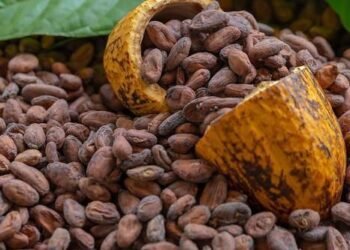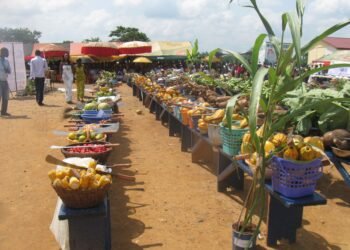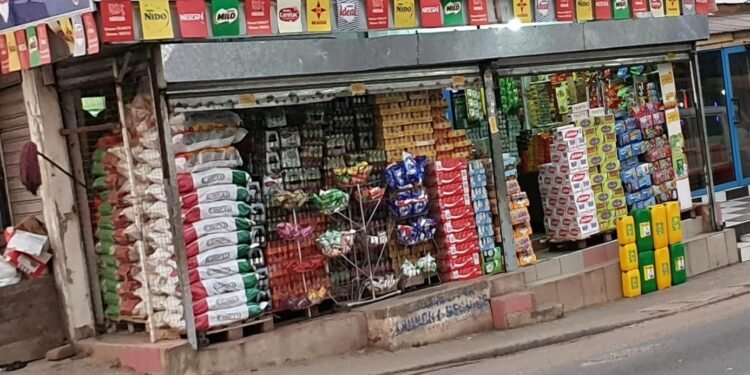The Ministry of Food and Agriculture (MoFA) has announced a major investment of €4 million aimed at boosting shea nut production in Ghana.
This strategic move is set to empower over 600,000 women who dominate the shea industry and revitalize PBC Shea Limited, a key company in the sector. The initiative is expected to raise Ghana’s export earnings and enhance the country’s position in the global shea market.
Speaking at the inauguration of the new board of PBC Shea Limited in Accra, the Minister for Food and Agriculture, Mr. Eric Opoku, disclosed that the Ministry has committed four million euros to enhance shea production and build the capacity of producers across the country. According to the Minister, this investment will be formalized through an agreement with the African Development Bank in the coming days.
“It is our hope that within the coming days, the agreement will be signed, and four million euros will be available for investments into shea production,” Mr. Opoku stated, signaling the government’s resolve to capitalize on the country’s immense shea potential.
Women at the Heart of Ghana’s Shea Industry
The shea sector in Ghana is overwhelmingly dominated by women, with more than 600,000 engaged in various stages of production including harvesting, processing, and marketing of shea nuts and butter. Recognizing the significance of the sector as a major source of income, Mr. Opoku called for the establishment of a firm agreement between PBC Shea Limited and farmers.
“This agreement should provide a ready market for farmers’ produce and create financial certainty and security among the farmers,” he emphasized.
Such a partnership, according to the Minister, would guarantee a steady supply of raw materials to the company while offering rural women long-term economic stability.
Once a vibrant player in Ghana’s agro-processing space, PBC Shea Limited has suffered collapse over the past eight years. Mr. Opoku urged the newly sworn-in board to lead efforts to fully revive the company in line with President Nana Akufo-Addo’s pledge to restore its operations.

“One thing you must note is that the board is different from management. You must work together, but the board should not interfere with the management of the company,” Mr. Opoku cautioned, urging professionalism and collaboration.
He reaffirmed the government’s confidence in the board, expressing high expectations for the transformation of the factory and the overall growth of the shea industry.
Unlocking Export Potential and Foreign Earnings
Ghana earned US$92.6 million from shea butter exports in 2022. However, Mr. Opoku is confident the country can surpass this figure exponentially. Citing global projections that estimate the shea market will grow from US$2.75 billion to US$5.58 billion by 2033, the Minister challenged industry stakeholders to act boldly. “We can go beyond US$500 million if we work assiduously to achieve the targets set,” he stated.
Ghana is currently regarded as the world’s leading exporter of high-quality shea butter, a position Mr. Opoku believes must be consolidated and expanded upon.
Reverend Fant Lambon Aaron, the newly appointed Board Chairman of PBC Shea Limited, outlined a bold vision to reposition the company as a global leader in shea processing and agro-processing excellence.
He pledged that the revitalized company would generate over 30,000 direct and indirect jobs, especially for women and youth in rural communities. “We shall work together to transform this institution from its current challenges into a beacon of excellence not just in Ghana, but on the world stage,” Rev. Aaron said.
The board’s transformation agenda is aligned with the government’s broader 24-hour economy vision, focusing on inclusive growth, job creation, and value addition in agro-processing.
This investment by MoFA, along with the renewed leadership at PBC Shea Limited, reflects Ghana’s renewed commitment to industrializing its agriculture sector through value addition. With increased production, strategic partnerships, and access to global markets, the shea industry stands poised to become a cornerstone of Ghana’s economic diversification and rural development efforts.
READ ALSO: Ghana’s Mobile Money Borrowing Surges: 22% of Adults Now Rely on It – World Bank























